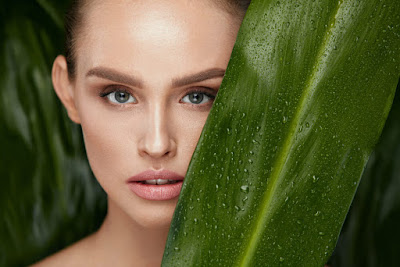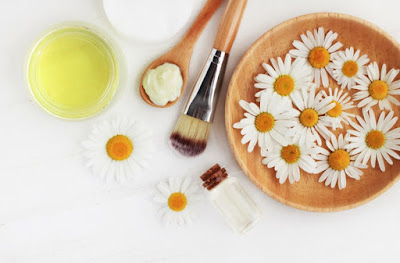Vegan cosmetics, a new name in vogue for cosmetics without animal products or tested on animals. A beautiful idea ... in appearance.
More and more people are going vegan diet, which goes beyond the simple stop of the meat. This is a real way of life, banishing fur of course but also leather, wool or silk, and any product based on beeswax or animal milk. Hence the wave of vegan cosmetics, which, if they guarantee the absence of animal products, can sometimes appear very unnatural.
Vegan cosmetics, a new cosmetic trend
First of all, what is a vegan cosmetic? It is a beauty product free from any animal product: indeed, some cosmetics may include products such as collagen (from carcasses of pigs or fish skins), glycerin (derived from animal fats) or the widely used carmine red from the cochineal, a small red aphid.
Other natural cosmetics, even organic, have less scary ingredients and cosmetic virtues recognized, such as honey, beeswax or milk, but they are also proscribed in vegan. In addition, a vegan beauty product is guaranteed untested on animals.
There are many labels for vegan cosmetics and / or not tested on animals. There are three main ones: the Vegan Society label (green flower), PETA's "Cruelty free and vegan" rabbit, and the One Voice label (which however has several categories that are difficult to determine).
Vegan, a marketing argument?
A reminder: the European Union has banned animal testing for cosmetic products since 2013. In principle, cosmetics bought in the EU are therefore free from animal testing. Why do you need a label to certify it?
In addition, vegan cosmetics are not necessarily organic, or not natural at all. Indeed, the manufacturers can impose the label vegan with a product resulting from the petrochemical or composed of ingredients not so good as silicones ...
To be clear, we have taken one of the favorite brands of fashionistas, Urban Decay, and its vegan range: the product Eye Shadow Primer Potion, an eye shadow base (anti-aging).
If this is often a real militant approach against cruelty to animals, these vegan labels are sometimes diverted by major brands to better sell their cosmetics. In addition, it can sometimes be a single range within the brand: a vegan argument that can hide suspicious behavior concerning their other products ...
So, where does one go if one wants real vegan beauty products? We choose the cosmetics on which we know how to decipher the label and which contain few ingredients. We also opt for vegetable oils: jojoba, sweet almond, coconut oil, by definition 100% vegan.
You can also make your own cosmetics, provided you know what you put in ... and avoid for example beeswax, an ingredient widely used in natural cosmetics!
In addition, vegan cosmetics are not necessarily organic, or not natural at all. Indeed, the manufacturers can impose the label vegan with a product resulting from the petrochemical or composed of ingredients not so good as silicones ...
To be clear, we have taken one of the favorite brands of fashionistas, Urban Decay, and its vegan range: the product Eye Shadow Primer Potion, an eye shadow base (anti-aging).
Proof by example
The description tells us that the product is manufactured "humane". But when you read the ingredients, you'll find all the types of parabens available, probably carcinogenic preservatives, polyethylene glycol or PEG, petroleum-based silicone and other petroleum derivatives. It may also contain titanium dioxide, a potentially carcinogenic additive. In short, maybe vegan but not very natural!If this is often a real militant approach against cruelty to animals, these vegan labels are sometimes diverted by major brands to better sell their cosmetics. In addition, it can sometimes be a single range within the brand: a vegan argument that can hide suspicious behavior concerning their other products ...
So, where does one go if one wants real vegan beauty products? We choose the cosmetics on which we know how to decipher the label and which contain few ingredients. We also opt for vegetable oils: jojoba, sweet almond, coconut oil, by definition 100% vegan.
You can also make your own cosmetics, provided you know what you put in ... and avoid for example beeswax, an ingredient widely used in natural cosmetics!














0 comments:
Post a Comment